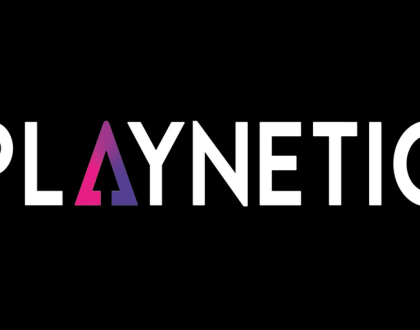Alderney’s Licensing Exploitation – The Untold Story

Over the decades, Alderney's licensing framework has attracted significant attention, yet many aspects remain shrouded in mystery. You might be surprised to discover how this small island has navigated the complexities of licensing exploitation, impacting both local residents and international players. In this post, we will examine into the intricacies of Alderney's approach to licensing, examining the untold stories behind its economic incentives and regulatory challenges. Understanding these factors will provide you with a clearer picture of Alderney's strategic significance in the global landscape.
Historical Context of Alderney's Licensing
Before discussing the current landscape of licensing in Alderney, it's crucial to explore its historical context, which laid the groundwork for today's policies and practices. Understanding these historical nuances can help you appreciate the complexities involved in Alderney's licensing environment.
The Early Years of Alderney Licensing
Early in Alderney's history, licensing was rudimentary and primarily focused on trade and local governance. This foundational approach established a framework that would evolve as the island's economic needs changed and adapted to broader socio-political influences.
Evolution of Licensing Policies
An examination of Alderney's licensing policies reveals a significant transformation influenced by both local and global trends. As the economy diversified, new sectors emerged, prompting updates in the licensing framework to accommodate industries such as tourism, hospitality, and commerce.
Another factor in this evolution has been the introduction of regulatory measures aimed at ensuring compliance and fostering sustainable growth. These updates often reflect broader legislative changes across the Channel Islands, showcasing a historical interplay between local policy-making and international standards.
Impact of Historical Events on Licensing
Alderney's licensing landscape has also been shaped by historical events, from wartime occupation to economic booms and busts. Each of these milestones has left its mark on how licenses are issued, regulated, and perceived by both residents and entrepreneurs.
The repercussions of events such as World War II have led to a cautious but adaptive approach in licensing practices. Periods of instability often prompted significant shifts in jurisdiction and governance, forcing policymakers to reassess existing structures to meet emerging needs and challenges, ultimately influencing the current licensing system you encounter today.
Regulatory Framework
If you are exploring Alderney's licensing landscape, understanding its regulatory framework is crucial. The licensing regulations in Alderney are designed to ensure that commercial activities are conducted fairly, transparently, and within the bounds of the law.
Overview of Licensing Regulations
The framework consists of various laws and guidelines that dictate how licenses are granted, monitored, and enforced. These regulations cover a range of sectors, including gaming, telecommunications, and finance, ensuring comprehensive oversight of business practices.
Key Regulatory Bodies and Their Roles
With the complex tapestry of regulations in place, several key bodies oversee licensing in Alderney. They ensure compliance with laws, monitor industry practices, and safeguard the interests of both consumers and businesses.
To navigate this landscape, you should familiarize yourself with the roles of bodies such as the Alderney Gambling Control Commission, which is responsible for regulating gaming activities, and the States of Alderney, which handles compliance for various industries. Each body plays a unique role in maintaining the integrity of the licensing process, ensuring that regulatory standards are met and guiding businesses through the intricacies of compliance.
Changes in Legislation Over the Years
On your journey through Alderney's regulatory framework, it's important to recognize how legislation has evolved over time. Amendments have been made to address emerging challenges and opportunities in various sectors, reflecting a commitment to maintaining a robust regulatory environment.
A deeper look into these legislative changes reveals how Alderney has adapted to new technologies and market demands. For instance, the introduction of specific guidelines for online gaming reflects an understanding of the global marketplace, allowing Alderney to stay competitive while upholding rigorous standards. By staying informed about these changes, you can better appreciate the unique regulatory context in which Alderney operates.
Economic Implications of Licensing
For Alderney, licensing serves as a significant source of revenue, which is crucial for sustaining local government operations and funding public services. The funds generated through various licensing fees can directly contribute to improved infrastructure, healthcare, and educational facilities, benefiting the entire community.
Revenue Generation for Alderney
For the small island of Alderney, licensing activities create a steady stream of income that supports various local initiatives. These funds not only enhance public amenities but also bolster programs aimed at improving the overall quality of life for residents.
The Role of Licensing in Local Economy
With a robust licensing framework, Alderney's economy is able to reap numerous benefits, creating a vibrant ecosystem for local businesses. Licensing encourages investment and promotes entrepreneurship, allowing you to explore diverse economic ventures that contribute to the community's financial growth.
Economy thrives on stability and opportunities, which is precisely what an effective licensing structure provides. By facilitating various industries, from gaming to tourism, licensing fosters an environment where you can successfully engage in business endeavors and stimulate local demand for goods and services.
Analysis of Financial Impact on Businesses
Role of licensing is pivotal for understanding its financial effects on operating businesses within Alderney. You may have noticed that adherence to regulations can initially seem burdensome; however, this structure often leads to greater long-term profitability and sustainability.
Impact arises when businesses are empowered through a clear and fair licensing process. The financial implications can be profound; successful companies can create jobs, attract investment, and generate tax revenue, ultimately enhancing the economic stability of Alderney. Through understanding and navigating licensing efficiently, you can secure your business's future while contributing positively to the local economy.
Social and Ethical Considerations
Many factors contribute to the broader implications of Alderney's licensing practices, especially when viewed through a social and ethical lens. Exploring how these practices impact the community reveals a complex web of relationships and consequences.
Community Perspectives on Licensing
Ethical considerations often arise from community views on licensing, where residents express varied opinions on its benefits and drawbacks. You may find that some see licensing as a way to foster economic growth, while others perceive it as a catalyst for inequality and exploitation. Understanding these perspectives is crucial for a balanced discussion.
Ethical Concerns in Licensing Practices
To navigate the ethical landscape of licensing practices, you must consider the implications for fairness and accountability. Licensing often raises questions about transparency and the selection process, which can lead to favoritism or corruption. You need to critically assess whether the licensing system promotes genuine opportunities or merely reproduces existing power imbalances.
Another significant ethical concern revolves around the environmental impact of licensing practices. You should reflect on how these practices may contribute to exploitative resource extraction or harm local ecosystems. Ethical licensing should ensure that businesses not only comply with regulations but also actively contribute to the welfare of the community and environment.
Licensing and Social Equity
Social equity is another critical aspect to consider in the context of licensing. You may ask yourself whether the licensing framework operates inclusively or predominantly benefits a select few. Disparities in access can perpetuate cycles of poverty and disenfranchisement among marginalized groups.
Understanding the relationship between licensing and social equity allows you to identify potential barriers that prevent fair access. You should explore how the current licensing policies may disproportionately affect various demographics, making it vital to advocate for reforms that prioritize equitable treatment and opportunity for all community members.
The Dark Side of Licensing Exploitation
Despite Alderney's reputation for being a hub for well-regulated online gaming, there exists a shadowy underbelly that reveals the dark side of licensing exploitation. Here, inappropriate practices flourish, often overshadowing the legitimate businesses striving to maintain integrity.
Instances of Misuse and Abuse
Exploitation in the gaming sector can manifest in various forms, from misleading advertising to lax compliance with gaming regulations. Some operators exploit licensing loopholes to prioritize profit over player welfare, leading to detrimental consequences for both the consumer and the industry's reputation.
Legal Ramifications for Exploitative Practices
Abuse of licensing regulations can lead to serious legal consequences. Violators may face hefty fines, loss of license, or even criminal charges. These sanctions not only impact the offending entity but can also tarnish the perception of legitimate operators, placing additional strain on the regulatory environment.
Dark issues like inadequate legal frameworks often give exploiters the upper hand, but understanding the consequences of such practices can serve as a deterrent. When regulators enforce strict measures and penalties, it underscores the importance of ethical conduct within the market, ultimately benefiting all stakeholders involved.
Cases of Neglected Oversight
Abuse of oversight is a prominent issue in Alderney's licensing landscape, where some authorities may overlook glaring violations. Inadequate supervision can result in the proliferation of exploitative practices that put consumer rights at risk, allowing unethical operators to thrive unchecked.
Practices of neglect in oversight are alarming and expose gaps in the regulatory framework. If you are engaged with licensing bodies, urging them to adopt a more vigilant approach could lead to enhanced accountability and reduced instances of exploitation in the long run. Without such efforts, the integrity of Alderney's licensing system remains jeopardized.
Stakeholder Perspectives
All stakeholders in Alderney have distinct views on the licensing exploitation affecting the local economy and community. Understanding these perspectives provides you a comprehensive insight into the various dynamics at play, whether you're a resident, a business owner, or simply an observer of the island's socio-economic landscape.
Government's Viewpoint on Licensing Exploitation
To the government, licensing exploitation is often viewed as a critical tool for regulation and economic growth. They believe it creates a framework to safeguard public interests while promoting investment. However, this viewpoint may also mask the unintended consequences that affect local businesses and communities.
Local Business Responses to Licensing Policies
Business owners on Alderney have voiced mixed responses to licensing policies, expressing concerns about stringent regulations stifling their growth opportunities. They frequently argue that the licensing framework is overly complex, making it difficult for small businesses to thrive in a competitive environment.
Stakeholder feedback shows that many local businesses feel overwhelmed by the nature of licensing requirements, often citing that they lack the resources to navigate the bureaucratic processes. This sentiment is particularly prevalent among new entrepreneurs, who struggle to establish themselves amidst red tape. As you consider these viewpoints, you may also reflect on the effects such policies have on job creation and economic stability in Alderney.
Public Sentiment and Local Activism
The community sentiment surrounding licensing exploitation is increasingly vocal, with residents rallying for more transparency and fairness in the licensing process. Activism has surged as locals seek to hold authorities accountable and ensure that their concerns are heard.
Licensing issues have ignited a local activist movement aimed at advocating for reform and greater public involvement in policy-making. This movement highlights your role and that of your neighbors in shaping the future of Alderney. By engaging in dialogue and supporting initiatives for change, you can contribute to a more equitable environment where the benefits of licensing are shared more broadly throughout the community.
Conclusion
From above, it becomes evident that Alderney's licensing exploitation holds significant implications that extend beyond its shores. You must recognize how regulatory practices can shape not only the local economy but also the global gaming landscape. By understanding these untold stories, you can better appreciate the complex dynamics at play and the importance of informed decision-making in the digital licensing arena. Your awareness can lead to a more strategic approach when engaging with similar regulatory environments in the future.
FAQs
What is the historical context of licensing in Alderney?
Alderney's licensing history began with basic regulations focused on trade and local governance. Over time, these policies evolved to accommodate various industries such as tourism and gaming, influenced by both local and global trends.
What are the key regulatory bodies overseeing licensing in Alderney?
Key regulatory bodies include the Alderney Gambling Control Commission, which regulates gaming activities, and the States of Alderney, responsible for broader compliance and regulation across various sectors.
How does licensing impact Alderney’s local economy?
Licensing generates significant revenue for Alderney, supporting public services and infrastructure. It also encourages investment and entrepreneurship, fostering a vibrant local business ecosystem.
What are the social and ethical considerations of Alderney's licensing practices?
Ethical concerns include transparency in the licensing process and its impact on social equity. Issues such as environmental impact and fair access to licensing opportunities are also critical factors.
How can licensing exploitation occur in Alderney, and what are the consequences?
Exploitation can involve misleading practices or non-compliance with regulations, leading to legal repercussions such as fines or loss of license. Neglected oversight can exacerbate these issues, affecting consumer rights and market integrity.
Michael
With over 20 years experience in web design, SEO and website promotion I always give you an expert advice in regard to any issues related to your Site Design, SEO, Internet Marketing, Promotion, Backlinks, Site Content. In order to help you find out what is missing or can be improved and get higher rankings in Google and more traffic.
Recommended Posts

Why iGaming Brands Choose Malta
October 4, 2024

Paul Burns: Pioneering Canadian iGaming
October 3, 2024

Playnetic Gains MGA Approval for Expansion
October 3, 2024




